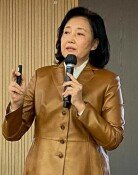NPS restructuring should come first before stewardship code
NPS restructuring should come first before stewardship code
Posted June. 26, 2018 08:01,
Updated June. 26, 2018 08:01
The National Pension Service (NPS) is introducing the stewardship code — a code of practice that allows the institution to be actively involved in corporate governance as a shareholder — next month. The level of engagement is still being discussed, but it will be interviewing corporate management, recommending outside directors and suing stockholder representation. The stewardship code is one of President Moon Jae-in’s election pledges. The Fair Trade Commission has started its investigation on unfairly awarded contracts and projects to chaebol affiliates as well, which means the Moon administration is holding a tight rein over conglomerates.
Introduction of the stewardship code is based on an argument that the NPS’s active participation in corporate governance will ultimately contribute to raising shareholder values by increasing transparency in corporate governance structure. This argument raises an issue in the current structure of Korean businesses that have strong owners, and the risks coming from it inevitably downgrades stock price of businesses. But many claim that the institution’s intervention would harm autonomy of Korean businesses.
There certainly are positive aspects in this decision, but there could also be side effects given the size of the NPS. The NPS is the third largest pension fund, whose total operation is over 630 trillion won, and is currently investing 130 trillion won in the Korean stock market. It owns more than five percent of shares in almost 300 companies. Some are concerned that if the Korean government starts wielding power with it to tame or restructure corporates, it would move businesses through the NPS, which some think of as “pension socialism.”
This is why the Democratic Party of Korea’s think tank The Institute for Democracy says a prerequisite to introduce the code is enhancing independence and expertise of the NPS. But the reality is otherwise. The minister of Health and Welfare heads the National Pension Fund Operation Committee, the final decision-making body of the NPS. It is doubtful whether individual investment decisions are made by the National Pension Service Investment Management (NPSIM), not by the committee, let alone their expertise. The NPSIM has not been headed by anyone for 11 months due to delays in appointment. Minister Park Neung-hoo provoked controversy just a month ago by suggesting active engagement of the NPS over Korean Air. The NPS also voted for Kookmin Bank’s appointment of labor board of directors.
The government is hurrying to introduce the code asserting that more than 20 countries including the United Kingdom, the United States, Japan and Canada have introduced the stewardship code. But it overlooks their independent national fund operation system. It is hard to expect the NPS to have autonomy under the current system where the Health and Welfare minister appoints the chairman and chief executive of the NPS. The government should find ways to enhance autonomy and independence of fund operation by consigning fund operation to a third party or establishing a separate institution. To run retirement savings of all Korean citizens, the NPS needs to restructure its own governance before looking into corporates. Introduction of the code is not the priority now.







